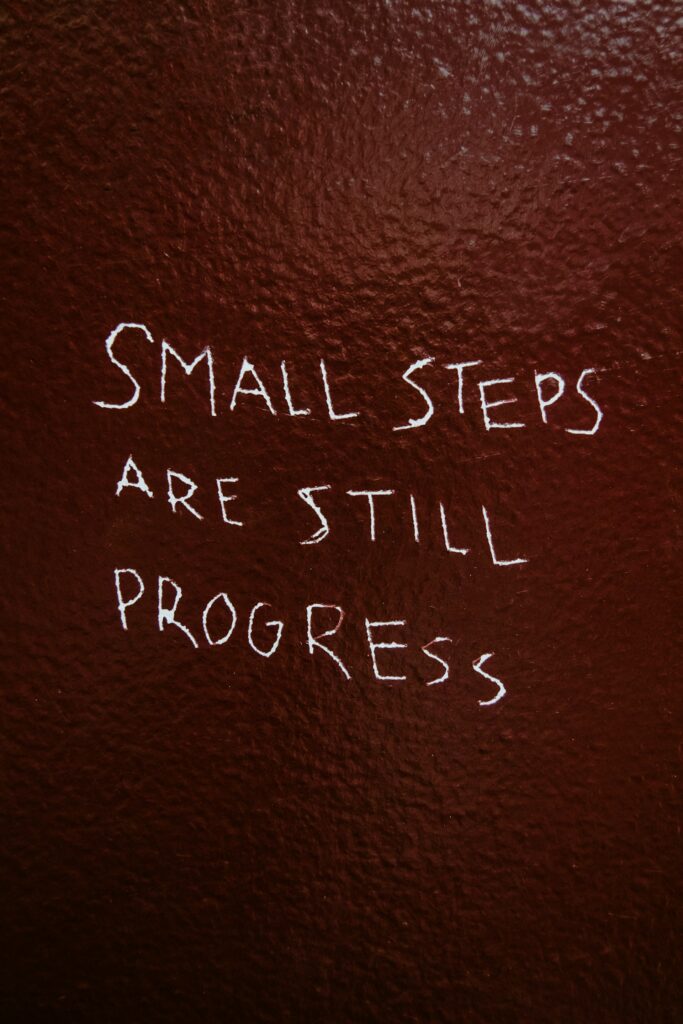Embarking on the journey of forming new habits is often accompanied by the expectation that it takes a mere 21 days to solidify them. However, the reality is far more nuanced, with studies suggesting a wide-ranging timeframe that can extend beyond 260 days. In this blog post, we’ll delve into the reasons behind this variability and explore habit making strategies to create habits that truly endure. Stop the self-criticism for not seeing immediate results and discover a fresh perspective on cultivating habits that last.
Habit Making Unveiled: Beyond the 21-Day Myth of Habit Formation
Listen to the full episode here

The 21-Day Myth: Breaking it Down
The commonly cited figure of 21 days originates from Dr. Maxwell Maltz’s observations in the 1960s. He noted that it took his patients about 21 days to adjust to certain changes. However, this timeframe was not based on rigorous scientific research but rather on anecdotal evidence.
The Reality: Upwards of 260 Days
A study from 2009 conducted by the University College London challenged the 21-day myth. The research indicated that forming habits is a gradual process, taking an average of 66 days but with considerable variation. Some participants took as little as 18 days, while others required more than 200 days to solidify a new habit. This wide variance highlights the complexity of habit formation and the individual differences at play.
Understanding the Variability
Several factors contribute to the considerable variability in the time it takes to form a habit:
- Complexity of the Habit: Simple habits may take less time to establish than complex ones that involve multiple steps or significant lifestyle changes.
- Individual Differences: Each person’s unique circumstances, personality, and history contribute to the time required for habit formation. What works for one may not work for another.
- Consistency and Repetition: Regular, consistent practice is crucial for habit formation. The more frequently a behavior is repeated, the more likely it is to become ingrained.
Creating Lasting Habits: A Fresh Perspective
- Release the 21-Day Expectation: Understanding that habit formation is a process, not a fixed timeframe, is the first step. Release the pressure of the 21-day myth and allow yourself the time needed to establish lasting habits.
- Focus on Progress, Not Perfection: Instead of fixating on the number of days it takes, celebrate the progress you make along the way. Acknowledge that setbacks are part of the journey and use them as learning opportunities.
- Build on Small Wins: Break down larger habits into smaller, manageable steps. Celebrate small victories, as these incremental successes contribute to the overall habit formation process.
- Visualize Long-Term Benefits: Connect with the long-term benefits of the habit you’re trying to establish. Understanding the positive impact it will have on your life can serve as motivation during challenging times.

RELATED: It’s Time for a Glow Up: Tips on Becoming Your Best Self
Habit formation is a unique and individualized process that defies the one-size-fits-all notion of a 21-day rule. By letting go of unrealistic expectations and embracing the variability inherent in habit formation, you set yourself on a path to create lasting changes. Focus on progress, celebrate small wins, and understand that the journey to lasting habits is a personal and evolving experience. Stop beating yourself up and start embracing the journey towards a more intentional and fulfilling life. Listen to this podcast, and let it guide you in the right direction!
If you’re looking for coaching opportunities to live your life to the fullest you can learn more here about my one-on-one coaching opportunities or my Flourishing Edge Membership with my Flourishing Edge program.


